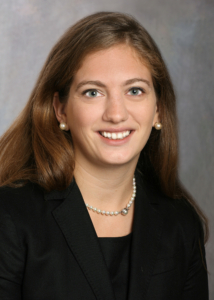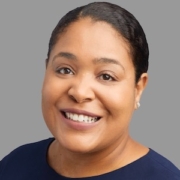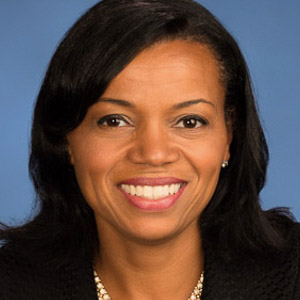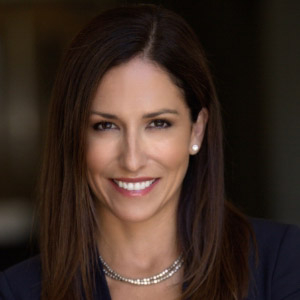Voice of Experience: Becky Lindahl, Head of Litigation, Charlotte, N.C.; Katten Muchin Rosenman LLP
 As a junior associate, Becky Lindahl says it took her a while to learn to stress less and recognize that building her practice was a long-term process, more particularly when it came to new business.
As a junior associate, Becky Lindahl says it took her a while to learn to stress less and recognize that building her practice was a long-term process, more particularly when it came to new business.
Only through experience did she come to realize that it was unrealistic to expect a young lawyer, fresh out of law school, to deliver solid business prospects. It turns out that some of the steps she was taking were the right ones and they ultimately put her on a path to success: making contacts in-house and keeping in touch with peers at law firms.
Now, Lindahl encourages younger associates to first focus on getting basic core skills, such as writing and reviewing and analyzing documents, down pat. “I see how they want to advise clients right away, and I can sense the frustration when they don’t have the opportunity to immediately sit in the first, or even the second, chair,” she says. “But the only way you learn is through mastering the fundamentals and observing senior attorneys to gain the experience you need. Eventually it all clicks.”
Earning Litigation Credibility
That savvy advice comes from experience and is the foundation for Lindahl’s impressive career rise. After joining Katten as a summer associate in 2005, she became a full-time associate following her graduation from Wake Forest University School of Law and federal clerkship. She was elevated to income partner in August 2014 and became Charlotte’s litigation head in January 2018.
Over the years, she has amassed numerous successes. One of her most notable was the first major case she managed from start to finish as lead counsel in a four-week federal jury trial during the summer of 2017 in Greensboro, N.C., representing a leading manufacturer and innovator in LED lighting technology. Under Lindahl’s leadership, with tens of millions of dollars in damages on the line, she scored a courtroom victory when the jury sided with her client on every issue.
“While the case was obviously high-stakes for the client financially, it also had great reputational risks and industry-wide concerns, so it was incredibly satisfying to lead the team to success,” Lindahl says. She found an affinity for bigger impact litigation and is currently lead counsel in two other similarly high-stakes lawsuits within the industry.
Concerning industry trends, Lindahl is concerned with balancing the risks and rewards of technology-assisted and automated discovery, which is becoming more prevalent in litigation. As she notes, automation of operations and services can lower costs for firms and increase efficiency. However, she also sees potential challenges in relying too much on innovating tools for tasks and processes when diving deep into cases, particularly in cases that may reach a jury. For example, lawyers might spot patterns in emails that emerging technology could miss, such as a meeting place that pops up regularly and corroborates timing of key events. “We have to be smart about managing litigation in a way that’s cost-sensitive and effective, and when you are preparing for a high-stakes trial, there is no substitute for having a comprehensive knowledge of the details of critical documents,” Lindahl says.
Advocates at Home and Work Help Bring Balance
Lindahl brings that same measured vision to her own work/life blend. With little control over your schedule in federal court, the unpredictability can be challenging for trial lawyers who are also trying to manage a family.
An understanding firm culture can help. For example, she says that she trusts her Charlotte associates to appropriately prioritize client needs and works with her associates on a one-on-one basis to provide necessary flexibility to accomplish that goal.
For her, having an understanding spouse is vital, and she encourages women who are starting in the industry to consider the importance of surrounding themselves with compassionate people in their corner. “The job is hard enough as it is, but it would be impossible to sustain without a supportive partner, if you choose to have one,” Lindahl said.
While some women have struggled over having a perfect balance or being able to “do it all,” she appreciates advice she received early in her career from a fellow female attorney at Katten who suggested she be kinder to herself and give herself some grace when things are challenging either at work or home.
Now, Lindahl passes on that same philosophy to younger associates in her current role as the Charlotte co-chair of the firm’s Women’s Leadership Forum. The group offers a national mentoring panel where senior women serve as mentors to younger women, whether for practice- or career-related topics or even personal issues.
For example, before Lindahl and her husband adopted their daughter, they went through years of infertility treatments. She said she appreciated how generous women at the firm were with their advice as she balanced the rigors of the time commitment, and that the firm’s benefits provided insurance coverage for the expensive treatments. When the couple made the decision to adopt a child, Lindahl reached out to another attorney to talk about the adoption process and managing parental leave on the short notice at which adoption sometimes occurs, and now offers her insight to women facing similar scenarios and seeking advice.
Today, she is mom to a 13-month-old daughter.
Lindahl is committed to variety of causes and sits on the board of directors for Safe Alliance, which provides wraparound support services for victims of domestic assault and sexual assault.
As an avid sports fan, she is looking forward to moving her family to Charlotte’s center city, within walking distance of the Spectrum Center, home to the NBA’s Hornets and other entertainment acts.
“There is no perfect balance between work and home, but I have had some success managing my practice and family by simply focusing on the most important task—whether client or family-related—before me at any given time,” Lindahl says.











